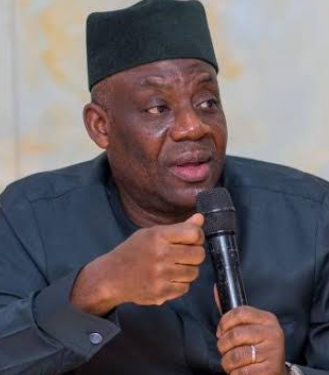In a bid to finally close the chapter on the lingering 2009 ASUU agreement, a high-stakes meeting is expected in Abuja this week where the Federal Government is expected to make a counter offer to the university lecturers in a bid to translate years of stalled renegotiations into concrete, implementable commitments with the Academic Staff Union of Universities (ASUU).
Informed sources hinted that the Minister of Education, Dr. Maruf Tunji Alausa, will join the Minister of Labour and representatives of the National Salaries, Incomes and Wages Commission (NSIWC) and the Solicitor-General of the Federation to meet ASUU leaders in Abuja to examine how to finally implement the renegotiated 2009 FGN–ASUU agreement and related reports produced in the most recent round of negotiations.
According to officials, the meeting will be tasked with delivering a clear timetable for signature and phased implementation.
ASUU had rejected government plans to provide soft loans to cushion whatever pains the lecturers and non-academic staff are facing across the nation’s tertiary institutions, different from concrete plans to rejig our educational institutions for improved productivity.
The urgency of the move by the Minister comes amid warnings from ASUU branches nationwide that their patience is exhausted after a renegotiation process concluded in December 2024 and formally submitted to government in February 2025.
Union leaders insist that the draft must now be signed and implemented to avert another nationwide shutdown of public universities.
Recalled that at a press conference in Abuja, the Zonal Coordinator of ASUU Abuja Zone, Prof. Al-Amin Abdullahi, stated that the union had kept its part of the bargain and expected government to demonstrate seriousness by adopting the report without delay.
The 2009 agreement remains the touchstone of the dispute, signed under the late President Umaru Musa Yar’Adua, which promised comprehensive reforms to Nigeria’s public universities, including sustained revitalisation funding, institutional autonomy, a negotiated salary and conditions package for academics, and a monitoring framework for implementation.
Its partial or non-implementation across successive administrations have led to recurring industrial actions.
Analysts estimate that, since 1999, cumulative industrial action by ASUU and other unions had cost the education sector the equivalent of nearly five years of lost academic time, a disruption that has corroded confidence in the country’s public sector higher education.
But, stakeholders and government insiders argue that what differentiates the current process is the approach of the Education Minister, Tunji Alausa, who has combined immediate remedial actions with long-term structural reforms.
Earlier this year, the Tinubu administration released N50 billion to settle earned academic allowances (EAA) owed to university lecturers and staff, a debt that had festered for almost two decades and repeatedly fuelled industrial actions.
The move, credited directly to Alausa’s intervention, was received across academic institutions as a restoration of trust and a demonstration that government could finally match promises with delivery.
Beyond arrears, Alausa has also launched the Diaspora BRIDGE Initiative, a digital platform designed to connect Nigerian professionals abroad with universities at home through mentorship, guest lectures, research collaboration, and curriculum support.
Unlike past ad-hoc outreach efforts, BRIDGE has been integrated into institutional monitoring systems to ensure accountability and measurable impact.
Policy voices including Dr. Dakuku Peterside and Prof. Yemi Oke, have commended the platform as “a deliberate and credible way to convert brain drain, to brain circulation, brain gain, further evidence that the current administration is treating education reform as systemic rather than episodic”.
This week’s meeting holding on Thursday, will confront immediate challenges, as sources in both the Ministry of Education and labour circles said its work would focus on reconciling the Yayale Ahmed draft concluded in December 2024, with the original 2009 text and subsequent reports, such as the Nimi Briggs recommendations, mapping phased fiscal commitments, into the national budget, and producing a legally sound instrument for signature.
If its terms of reference are clear and its deliverables published on time, observers say it could avoid the fate of earlier reports that never advanced beyond filing cabinets.
Nonetheless, obstacles remain because ASUU had rejected loan-style “support funds” in place of cash entitlements, while bureaucratic constraints, budget cycles, and fiscal pressures pose risks to rapid implementation.
Years of accumulated distrust on campuses will also require more than one payment or policy gesture to overcome, but Alausa’s explicit focus on clearing historic debts and building trackable systems has shifted the conversation from rhetoric to deliverables, a change some observers believe may prove decisive.
For President Tinubu, the outcome will test his administration’s commitment to ending the cycle of strikes that has defined the nation’s university for decades.
For Minister Alausa, the stakes are equally high: converting early applause for the N50 billion settlement and the BRIDGE platform into lasting agreements that can be signed, implemented, and sustained.
If the process delivers, the 2009 agreement, long a source of frustration and lost opportunity, could finally be brought to a close not by promises, but by action.









